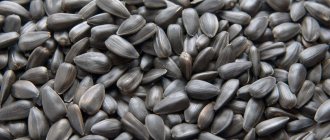Useful microelements
A young mother who follows the principles of proper nutrition provides herself and her newborn with all the necessary nutritional components. A balanced diet allows you to quickly restore the body and create conditions for the harmonious development and growth of the child.
Additional use of medications may be recommended by a doctor provided:
- Difficult labor;
- Weaknesses of a woman;
- General poor health;
- The presence of loss of strength, depression;
- Lack of balanced nutrition;
- Threats of consequences arising from the field of bearing a child;
- Deterioration in appearance;
- Insufficient lactation to support natural breastfeeding;
- A pronounced lack of nutrients in a newborn.
The most popular elements to support the health of a young mother are the following groups of vitamins:
- Retinol - increases the absorption of nutrients through the mucous membranes;
- Ascorbic acid - strengthens the vascular network, prevents infectious diseases. Promotes the proper formation of the immune system in a newborn;
- Tocopherol - stimulates the production of prolactin, restores the beauty of nails, hair, and skin. Antioxidant. Provides regeneration processes;
- Calciferol - enhances immune reactions, helps absorb mineral salts. Normalizes heart performance;
- B vitamins - stabilizes hormonal levels, metabolic processes, regulates nervous processes;
- Calcium - improves well-being, ensures healthy growth;
- Phosphorus - increases tissue mineralization;
- Zinc - normalizes the synthesis of protein compounds, helps strengthen bones;
- Iron - prevents anemia and fatigue.
Contraindications and side effects
Contraindication is personal intolerance or hypersensitivity to the drug. An excess of acid has a bad effect on the digestive system, so when consuming you need to strictly follow the recommended dose.
Possible side effects:
- nausea and vomiting, cramps;
- headache, insomnia, feeling tired;
- allergic skin reactions;
- formation of kidney stones;
- burning and itching in the vagina, increased amount of discharge, swelling;
- increase in body temperature.
The acid is water-soluble, so in case of an overdose, it will simply be eliminated from the body after some time. But this does not mean that side effects can be avoided. It is better not to risk either yourself or the baby’s health and not use the supplement in large quantities.
Benefits of vit. E at gv
Tocopherol is considered a women's vitamin. By maintaining youth and beauty, the microelement improves the general condition of the body. The properties of compound E are reflected in the improvement:
- Metabolism;
- Breast health and proper functioning of the mammary glands;
- Blood circulation;
- Restoration of tissues, cells;
- Early healing, preventing scar formation;
- Condition of muscle fibers, which is important after pregnancy and childbirth;
- Synthesis of hormones of the reproductive system;
- Normalization of the menstrual cycle.
Vitamin E during breastfeeding, reaching the baby through breast milk, contributes to:
- Active growth;
- Healthy development of the nervous and endocrine systems;
- Normalization of red blood cell production;
- Prevention of anemia;
- Reducing the risk of megablastoma pathology;
- Increasing local immunity of the mucous membranes of the respiratory system.
Additionally, vitamin E can be obtained by taking vitamin complexes intended for pregnant and lactating women, as well as by consuming capsules with liquid tocopherol acetate content. Use of Omega 3 fish oil.
Combination with glucose during pregnancy
Pregnant women can also use ascorbic acid with glucose.
The main function of glucose is to regulate metabolic processes in the body. It may be indicated for renal failure and intoxication of the body.
However, expectant mothers should absolutely not abuse glucose, as this increases the risk of impaired insulin production.
Administration of vitamin C with glucose may be indicated during pregnancy with severe toxicosis in order to restore normal redox reactions and nutrition.
Intravenous infusion of this component in later stages can also be used for this purpose. stopping uterine bleeding.
B vitamins during guardianship
When breastfeeding, compounds B are required for normal support of the functioning of the whole organism.
For the health of a nursing mother and the full development of the baby, the main elements are:
- B2 – riboflavin. Supports oxidative and reduction processes. Promotes the synthesis of amines, hormones, enzymes, microelements. Participates in the production of red blood cells. Protects nerve fibers from destruction. Normalizes the breakdown of sugars and carbohydrates. Improves the external condition of the skin, hair, nails;
- B6 – pyridoxine. Allows fatty acids to be completely absorbed. Supports the functioning of the heart and blood vessels. Prevents fluid accumulation. Reduces blood pressure. Restores the emotional background. Increases the functioning of the central nervous system. Normalizes the heme formula and prevents anemia. Promotes regeneration of skin and tissues;
- B12 - cyanocobalamin. Participates in cell division and maturation of red blood cells. Increases the body's ability to renew tissue structures. Improves the processes of formation of nerve fibers. Normalizes the growth and mental development of the child. Reduces the effects of stress. Maintains good memory and concentration. Normalizes digestion and increases appetite.
What is ascorbic acid?
The benefits of ascorbic acid (vitamin C) are a well-known fact. This compound is especially indispensable in the midst of viral seasonal diseases.
The substance helps to increase the synthesis of interferon, which makes it possible to improve immunity. Vitamin C also helps strengthen blood vessels and improve the condition of cartilage and bones.
Vitamin C stimulates the synthesis of other vitamins, helps the body better absorb nutritional components, participates in the exchange of a number of important structures and compounds, promotes the synthesis of necessary enzymes and normal absorption of carbohydrates.
Symptoms of deficiency
If there is a lack of vitamin C in the body, symptoms such as slow wound healing, hematomas, and bleeding gums are observed.
There is increased irritability, lethargy, and a tendency to depression. Joint pain is also observed. Pregnant women also need this component.
Diet
To provide the necessary microelements, you need to adhere to the rules of a healthy diet. High-quality products, a variety of fruits, vegetables, lean meat and fish guarantee a sufficient supply of nutrients and stable lactation.
The menu for a nursing mother includes:
| Bell pepper, pumpkin, cucumbers, parsley, cheese, butter | Retinol |
| Oatmeal, buckwheat, nuts, milk, cottage cheese, spinach, chicken breasts, potatoes, peaches, dried apricots, leafy vegetables | Group B |
| Cod liver, egg | Calciferol |
| Olive, sunflower, vegetable oils, wheat germ | Vitamin E |
| Rose hips and sea buckthorn, black currants, dill | Ascorbinka |
| Buckwheat, beef liver and tongue, almonds, hazelnuts, green apples | Iron |
| Cheese, nettle, cottage cheese, sour cream, parsley | Calcium |
| Poultry, cheese, oatmeal, buckwheat | Zinc |
| Bran, pumpkin, sunflower, milk, cheese, fish | Phosphorus |
Overdose
Despite all the benefits of vitamin C, pregnant women should absolutely not abuse .
It is found in many products of plant origin, and if you additionally consume the substance in the form of pharmaceutical preparations, there is a possibility of overdose .
It may manifest itself with the following symptoms:
- headache;
- sleep disorders;
- increased body temperature;
- tides.
Attention! To prevent negative reactions, any vitamin complexes and medications should be taken only with a doctor’s prescription.
Medicines
On the recommendation of a therapist or pediatrician, additional sources of microelements are prescribed.
Based on the general condition, blood tests and complaints of the mother, a drug is selected that helps to enrich the necessary compound.
As a preventive measure, they drink complex drugs: Vitrum Prenatal, Complevit Mama, Elevit, Alphabet for pregnant and lactating women.
If a deficiency of a certain microelement is detected, the following are prescribed: Vitamin E capsules, fish oil. Tablets with vit. group B. Ascorbic acid. Colecalciferol.
It is also recommended to review your diet, increase the amount of vegetables and fruits, and dairy products. It is worth reviewing the daily routine, increasing the time for walks and daytime rest.
How does aspirin work and what does it help with?
Today it is customary to talk about four pharmacological properties of aspirin, or acetylsalicylic acid:
- Antipyretic.
- Painkiller.
- Anti-inflammatory.
- Antithrombotic.
Moreover, the severity of this or that effect directly depends on the dose of the drug. The antithrombotic effect is achieved by taking small doses of aspirin; with increasing doses, the predominant effect of the drug is pain relief and a decrease in temperature.
Most often, aspirin is taken to reduce fever, relieve an attack of pain (headache, dental, menstrual, etc.) and thin the blood. It must be admitted that the antipyretic properties of acetylsalicylic acid are indeed very strong (in particular, in comparison with such drug analogues as paracetamol and ibuprofen).
Fever is the most common reason for taking aspirin.
The antipyretic and analgesic effect of aspirin can occur within 10 minutes after taking the tablet (sometimes you need to wait longer, up to half an hour), while the anti-inflammatory properties of the drug begin to appear several (from two to twelve) hours after taking it.
The analgesic properties of acetylsalicylic acid are due to the fact that the drug acts on nerve fibers, reducing their sensitivity, thereby preventing the development of pain. To the credit of the drug, it can be noted that it demonstrates its effectiveness even against such a painful type of headache as migraine.
Aspirin is also taken for headaches
The antithrombotic properties of the drug allow it to be used for the treatment and prevention of thrombosis, heart attacks, other diseases of the cardiovascular system and problems with cerebral circulation. Tests conducted on one hundred thousand volunteers suggest that daily preventative use of the drug reduces the risk of a heart attack in men by about a third (in women this percentage is half as high).
Small doses of aspirin are taken to prevent heart problems.
Aspirin’s ability to thin the blood and get rid of microclots that form in it makes the drug indispensable for severe forms of hangover (the famous Alka-Seltzer is the same acetylsalicylic acid).
Acetylsalicylic acid is also widely used for rheumatism, arthritis and other diseases affecting joints and connective tissue.
But even this is not all.
According to research by Professor Peter Rothwell from the University of Oxford, regular intake of acetylsalicylic acid reduces the 20-year risk of developing prostate cancer by 10%, lung cancer by 30%, bowel cancer by 40%, and cancer of the esophagus and throat by 60%.
The era of aspirin: the history of the creation of a drug for pain, fever and cancer
https://www.aif.ru/health/life
Acetylsalicylic acid, as evidenced by American and Canadian scientists, also reduces the likelihood of developing malignant tumors in the liver, and Australian researchers even noticed that the drug has a beneficial effect on the nervous system and minimizes the manifestation of depression.
Of course, all of the above problems (high temperature, severe pain, thrombosis, varicose veins, problems with joints and heart) can occur at any age and in any condition, and a nursing mother is not protected from all this either.
Harm
If vitamin preparations are prescribed by a doctor and the dosage is observed, then there is no danger to health. Each medication has instructions that describe the rules and regulations for use, contraindications, and purposes of prescription.
There are a number of contraindications in which the use of vitamins is limited:
- Allergic reactions in mother and child;
- Excess of microelements.
Reviews about the use of vitamins found on blogs have a wide variety of ratings. Some women are inclined to believe that synthetic microelements are not needed with proper nutrition. But most young mothers support the use of medications if they are recommended and selected by a doctor, taking into account all the health characteristics of the nursing mother and the child.
Indications for use
Ascorbic acid is used to treat hypovitaminosis and vitamin deficiency and provides the required daily requirement of vitamin C for the body. Also, it is used during heavy loads, during pregnancy, lactation and to increase the protective properties of the body. Its use is recommended after long-term illnesses, as well as during the winter.
If your skin is pale, your immune system is weak, and your mood leaves much to be desired, then this is a sure signal that indicates a lack of vitamin C in the body. And if a woman lacks this vitamin, then the child also needs it.
TOP 9 multivitamins during lactation
Multivitamins that can be taken during breastfeeding are often similar in composition to those prescribed during pregnancy. The doctor determines which vitamins to choose based on the mother’s test results. But often the most suitable drugs for a woman are revealed during their use. You may have to try several different complexes for this.
Below are the best vitamins for breastfeeding mothers, according to consumers. They have different compositions, which must be taken into account before prescribing to a woman.
№1 Alphabet ® Mom's health
Vitamins Alphabet Mom's Health is a budget option for a lactation complex. The drug has low effectiveness compared to expensive analogues. These inexpensive vitamins should be taken three times a day. For ease of consumption, they are colored differently.
No. 2 Vitrum ® prenatal forte (vitrum prenatal forte)
The complex includes all essential vitamins and minerals. This remedy is considered expensive, but thanks to these multivitamins, the mother can increase her hemoglobin level and quickly restore the body after childbirth. Excess iron is harmful to health, so the complex should be taken in accordance with the dosages prescribed by your doctor.
No. 3 Complivit ® “Mama”
A budget-friendly formula for breastfeeding enriched with useful elements. Due to its low effectiveness, it should be taken for preventive rather than therapeutic purposes. Complivit “Mama” will protect a woman from possible vitamin deficiency during breastfeeding.
No. 4 Ratiopharm ® Pregnavit
Multivitamins for nursing mothers from Ratiopharm perfectly compensate for nutritional deficiencies during lactation. But the cost of the drug can be classified as “above average”.
No. 5 Elevit ® Pronatal
This very expensive drug has a complete composition, which does not include only iodine. Take it once a day at approximately the same time.
No. 6 Femibion ® Natalker II (Femibion natalcare 2)
For nursing mothers, vitamins are available in the form of tablets or capsules, which must be taken once a day. The main difference between multivitamins is the presence of polyunsaturated acids in them, which are rarely found in preparations for nursing mothers. Thanks to the composition of vitamins, the child will develop fully, and the mother will more quickly restore her body after childbirth.
No. 7 Solgar Prenatal Nutrients (Solgar Prenatal Nutrients)
A complex of vitamins for nursing mothers from Iherb (Ayherb) should be taken 4 times a day with meals. Multivitamins are easily absorbed by the body and have a natural composition that will definitely not harm the baby.
No. 8 Multi-tabs ® Perinatal
This is a complex taken to prevent vitamin deficiency during breastfeeding. A large amount of nutrients in the drug provides the baby with everything necessary for its physical and mental development.
No. 9 Finnish vitamins Minisun ® Mama (Minisan mom)
Multivitamins developed by Finnish manufacturers included all key vitamins and microelements. Take no more than one tablet (small and flat) once a day. The drug is easy to use and practically does not cause allergies.
Table 2 - List of vitamins for mothers during breastfeeding
| Element: | Daily rate: | №1: | №2: | №3: | №4: | №5: | №6: | №7: | №8: | №9: |
| Price, rub | — | 270 | 700 | 247 | 800 | 730 | 980 | 1180 | 730 | 1600 |
| Vitamin C | 100 mg | 50 | 120 | 100 | 90 | 100 | 110 | 100 | 90 | 120 |
| Vitamin B1 | 1.5 mg | 1.2 | 3 | 2 | 1.95 | 1.6 | 1.2 | 1.7 | 2.1 | 5 |
| Vitamin E | 10 mg | 12 | 30 | 20 | 10.5 | 15 | 13 | 0.75 | 10 | 15 |
| Vitamin B6 | 2 mg | 2 | 10 | 5 | 5.25 | 2.6 | 1.9 | 2.5 | 3 | 5 |
| Calcium | 1200 mg | 250 | 200 | 25 | 250 | 125 | — | 1.3 | 160 | — |
| Phosphorus | 1 g | 125 | — | 19 | — | 125 | — | — | — | — |
| Chromium | 50 mcg | 0.025 | 0.025 | — | — | — | — | 0.025 | 0.05 | — |
| Folic acid | 0.4 mg | 0.03 | 0.08 | 0.04 | 0.982 | 0.8 | 0.02 | 0.08 | 0.4 mg | 0.04 |
| Folates | 3 mg | — | — | — | — | — | 0.04 | — | — | — |
| Omega-3 | 500 mg | — | — | — | — | — | — | — | — | — |
| Beta Carotene | 2500 IU | 2 | 0.015 | — | — | — | — | — | — | — |
| Iron | 60 mg | 20 | 60 | 10 | 30 | 60 | — | 27 | 14 | 20 |
| Taurine | 400 mg | 50 | — | — | — | — | — | — | — | — |
| Nicotinamide | 20 mg | 19 | 20 | 20 | — | 19 | 15 | 20 | 27 | 20 |
| Riboflavin | 2.2 mg | 1 | 3.4 | 2 | 2.75 | 1.8 | 1.6 | 2 | 2.4 | 5 |
| Magnesium | 450 mg | 50 | 25 | 25 | — | 100 | — | 450 | 75 | 180 |
| Zinc | 25 mg | 12 | 25 | 10 | — | 7.5 | — | 15 | 15 | 15 |
| Manganese | 5 mg | 1 | 5 | 2.5 | — | 1 | — | 2 | 2.5 | — |
| Iodine | 200 mcg | 0.015 | 0.015 | — | — | — | 0.015 | 0.015 | 0.15 mg | 20 mg |
| Selenium | 70 mcg | 0.04 | 0.02 | — | — | — | — | 0.025 | 0.05 mg | 0.06 |
| Molybdenum | 250 mcg | 0.025 | 0.025 | — | — | — | — | — | — | — |
| Sodium | 1300 mg | — | — | — | — | — | — | 15 | — | — |
| Potassium | 2500 mg | — | — | — | — | — | — | 50 | — | — |
| Inositol | 300 mg | — | — | — | — | — | — | 10 | — | — |
| Soy protein isolate | 80 g | — | — | — | — | — | — | 160 | — | — |
| Kholin | 2000 mcg | — | — | — | — | — | — | 4 | — | — |
| Pantothenic acid | 7 mg | 5 | 10 | 10 | 20.661 mg | 10 | 6 | 10 | 9 | 5 |
| Cyanocobalamin | 4 mcg | 0.03 | 0.012 | 0.05 | 0.0575 | 0.04 | 0.035 | 0.08 | 0.002 mg | 0.03 |
| Phytomenadione | 65 mcg | 0.06 | — | — | — | — | — | — | — | — |
| Biotin | 50 mcg | 0.03 | — | — | — | 0.2 | 0.06 | — | — | 0.03 |
| Retinol | 5000 IU | 0.086 | — | 0.05675 | 1.815 | 90 | — | 0.125 | 0.8 | |
| Ergocalciferol | 0.01 mg | 0.01 | 0.01 | 0.0625 | 0.0055 | 12.5 | — | 10 | 0.005 | 0.01 |
| Copper | 3 mg | 1 | 2 | 2 | — | 1 | — | 2 | 2 | 1 |
1 IU (international unit) = 0.025 mg
What vitamins are best for breastfeeding?
So which of these vitamins are best for nursing mothers? This question does not have a clear answer. Every mother is individual. In addition to personal beliefs, you need to take into account the advice of your doctor - this is the main criterion for switching to vitamin complexes. Let's analyze vitamins for mothers according to 3 criteria: by the number of useful elements in the composition, by price and by reviews of real consumers.
By content of nutrients
The leaders in this parameter are: Alphabet Mom’s Health vitamins and Solgar Prenatal Nutrients from the company Iherb. At the same time, the American analogue costs 3-4 times more.
By price
The cheapest vitamins are Alphabet Mom's Health and Complivit Mom - they will cost 250 rubles. The most expensive vitamins are from Finland: Minisun Mama with a price of 1600 rubles.
According to reviews
Table 3 - Comparison of vitamin complexes by number of reviews and ratings
| Name: | Otzovik | Recommend: | ||
| Number of reviews: | Rating: | Number of reviews: | Rating: | |
| Alphabet | 64 | 87% | 112 | 82% |
| Vitrum | 67 | 85% | 249 | 84% |
| Complivit | 152 | 73% | 216 | 64% |
| Pregnavite | 15 | 86% | 8 | 62% |
| Elevit | 496 | 81% | 458 | 78% |
| Femibion | 32 | 90% | 131 | 90% |
| Solgar | 16 | 87% | 20 | 80% |
| Perinatal | 30 | 76% | 27 | 90% |
| Minisan | 8 | 100% | 12 | 96% |
Judging by the reviews, the leader is the vitamin complex Elevit Pronatal. These vitamins have the largest number of positive reviews from the group under consideration.
Foods High in Vitamin C
There are many categories of products that contain beneficial ingredients, but not all of them are acceptable during breastfeeding. Therefore, during breastfeeding, a woman should pay attention to such ingredients as:
- Potatoes, zucchini, tomatoes, eggplants with caution.
- Greens in leaves, onions in feathers or onions.
- Fennel, nettle, yarrow.
- Apples, bananas, pears, peaches.
- Berries: sea buckthorn, currant, rosehip.
- Cabbage is either cauliflower or broccoli.
- Goat's milk.
- Compotes, juices of natural origin.
The list of products containing vitamin C is quite wide and allows you to make the diet of a nursing mother quite varied.
In this case, you should refrain from consuming the following products:
- radish or horseradish;
- radish;
- mint;
- citruses, fruits from exotic countries;
- bright and seasonal berries - raspberries, strawberries and wild strawberries;
- White cabbage;
- bell pepper;
- juice or drinks from the store, tomato juice.
Do breastfeeding mothers and babies need vitamins?
Greetings, our dear readers. It seems to me like this: most likely, you recently gave birth to a baby and chose breastfeeding for him.
You have already read everything you can about breastfeeding and the diet of a nursing woman, and now you have one unanswered question.
Do breastfeeding need vitamins? Well, let's look at this issue together and find out whether they are needed or not, and if so, which ones are needed.
I want to remind you that you can always leave a comment on the article, advise something to other mothers, or ask a question.
Is it possible
Of course, the answer to this question is yes. A woman during lactation really needs useful microelements, but they are needed not only by the mother, but also by the little person born.
Let's understand in what cases a nursing mother needs to take them.
- If the body recovers very slowly after childbirth, the woman feels constant weakness and fatigue.
- The diet is not balanced; the woman does not receive all the necessary microelements with food. As a result, the little one doesn’t get enough nutrients either.
- Health problems, appearance changed, pallor appeared, hair fell out, skin condition changed.
Now let's see what vitamins and minerals women usually need. And from what products they can be obtained.
- A
- WITH
- B
- D
- E
- Calcium
- Iron
- Phosphorus
- Zinc
Some doctors are of the opinion that pharmaceutical drugs are not always useful. For example, Dr. Komarovsky is confident that vitamins should come exclusively from food.
In order to have enough vitamins, you need to eat right. The menu of a nursing mother must include vegetables, fruits, meat, porridge, and fish.
During the postpartum period, it is very useful to eat liver; it contains all the microelements for quick recovery. Tomatoes contain iron, fermented milk products are rich in calcium.
Contraindications
Unfortunately, it is not always possible to eat as expected due to lack of time and other circumstances, and then the woman is forced to buy vitamin complexes at the pharmacy.
But before you go to the pharmacy, you should definitely go to the doctor to understand whether you really need vitamins.
The list of contraindications is very small and consists of only 2 points.
The first says that it is forbidden to take the drug if you have an allergic reaction, and the second if you have hypervitaminosis. So, in order to find out whether you have this very hypervitaminosis, you need to go to the doctor.
How to choose
Very often, nursing mothers begin to worry about the condition of their hair, they begin to fall out, split ends, and the natural shine disappears. But don't worry, this situation can be corrected. Take special complexes to strengthen your hair.
List of drugs that are most often taken during lactation.
- Elevit
- Sana-sol
- Mom is complimentary
- Alphabet
All these vitamins have a balanced composition and have a positive effect on the entire body as a whole.
By the way: Hypervitaminosis is an excess of vitamins in the body, it is considered much more dangerous than vitamin deficiency.
Everything that the mother eats, be it food or medicine, is excreted in the milk and enters the baby’s body. Nature has designed the female body in such a way that it gives its own supply to the baby, and even if the mother has very little calcium, the baby will get it.
Only women will suffer from a lack of substances. But if there are no useful substances in the mother’s body at all, then the little one will suffer as a result.
Rule of choice. Everything is very simple here, remember your pregnancy and what vitamins you took.
If the medications were suitable for you during pregnancy and you felt well, then you can continue taking them with a clear conscience.
Remember, if you start taking medications without the advice of a doctor, all responsibility falls on you.
I think it would be more advisable to waste a little time on a consultation and not risk the children’s health.
Subscribe to the newsletter. Share the article on social networks, leave your opinion, and be healthy.
Bye!
vitalkin-blog.ru
Can a nursing mother take ascorbic acid: description, instructions for use
The body of a lactating woman and newborn needs more nutrients than before pregnancy. However, it should be remembered that an excess of vitamins is more dangerous for both mother and child than a deficiency. Therefore, before taking it, you should visit a doctor who will determine the required dosage.
Ascorbic acid (vitamin C) is a popular vitamin preparation that is used to prevent and treat various diseases. Can vitamin C be consumed by lactating women? More on this later.
Basic information
Dosage forms of ascorbic acid: tablets, dragees, powder and solution for injections. The effectiveness of different dosage forms varies. Vitamin C injections are used when absolutely necessary to cleanse the body of toxic substances, and other forms are used for prevention.
Ascorbic acid promotes the formation of collagen inside cells, strengthens bone tissue and small blood vessels. Vitamin C is involved in biologically important chemical reactions: metabolism of tyrazine, carbohydrates, iron, cellular respiration, redox reactions, etc. After regular use, the body becomes resistant to infections.
Ascorbic acid in a suitable form is administered intravaginally. The vitamin normalizes the acid-base balance in the vagina, suppresses the development of harmful bacteria, and supports the natural bacterial flora.
Vitamin C is prescribed for the following conditions:
- Hypo-, avitaminosis of ascorbic acid;
- Lack of ascorbic acid in children (during active growth), pregnant and lactating women;
- To support the body under high moral and physical stress, in the postoperative period;
- During epidemics of infectious diseases in the autumn-winter period.
The drug is taken intravaginally:
- In case of chronic or recurrent inflammation of the vaginal cavity (vaginal dysbiosis, nonspecific colpitis), due to changes in the acid-base balance of the vagina;
- To normalize the natural bacterial flora of the vagina.
Ascorbic acid preparations are taken orally, intramuscularly, intravenously and vaginally. To prevent vitamin C deficiency, take 25–80 mg per day, for treatment – from 250 mg per day.
Contraindications
Ascorbic acid should not be used if you are hypersensitive to vitamin C. In some cases, the drug causes headaches, increased fatigue, and sleep disturbances. If the dosage is violated, stomach cramps, nausea, and vomiting are possible.
Sometimes there is a rash, itching, and breathing problems. An overdose can lead to hyperoxaluria and the formation of kidney stones. Sometimes after insertion into the vagina, irritation, itching, copious discharge, and swelling of the external genitalia occur. In some cases, body temperature rises. To learn how to cope with an increase in temperature in a nursing mother, read the article at the link https://vskormi.ru/mama/temperatura-pri-grudnom-vscarmlivanii/.
Under the supervision of a physician, preparations based on ascorbic acid should be used by nursing mothers and patients with functional renal failure.
It is forbidden to take a vitamin preparation in high dosage to persons with pigmentary cirrhosis, Cooley's anemia, erythremia, and leukemia. This is explained by the fact that as a result of taking vitamin C, iron absorption increases.
If the concentration of iron in the blood serum is high, it is necessary to take a minimum dose of ascorbic acid. If a vitamin preparation is taken by a patient with diabetes, doctors recommend constantly monitoring glucose concentrations.
Ascorbic acid during lactation
Vitamin C cleanses the body of toxic substances, destroys harmful bacteria, and strengthens the immune system. And therefore, ascorbic acid is necessary during breastfeeding, since the body of a nursing mother is weakened after childbirth. A lactating woman needs 80–100 mg of vitamin C per day. This is explained by the fact that after childbirth the body’s defenses decrease and the woman may get sick.
The newborn's body is saturated with vitamin C through breast milk. That is why a lactating woman must take the drug in a strictly prescribed dosage. An overdose can lead to dangerous complications not only for the mother, but also for the child.
Many doctors recommend that nursing mothers compensate for the lack of vitamin C through natural products. Include vegetables, fruits and herbs in your daily diet. However, it should be remembered that after heat treatment (cooking, freezing, etc.) the level of vitamin in the product decreases. A balanced diet ensures that the body is saturated with ascorbic acid.
Thus, ascorbic acid is allowed to be taken during lactation if the potential benefit to the mother outweighs the expected danger to the newborn. A nursing mother must strictly follow the doctor’s recommendations and remember that self-medication can have dangerous consequences.
vskormi.ru
Tips and tricks
Experts warn women: when you are breastfeeding and experiencing a vitamin deficiency, you should choose the appropriate complex not on the advice of friends or reviews of other people, but according to the doctor’s recommendations.
In addition, experts recommend taking medications in the first half of the day, when the body best absorbs macro- and microelements and vitamins. To achieve the fastest positive result, the drug should be taken at the same time in the indicated dosage, observing the duration of the course.
Do not forget about the need to adhere to proper nutrition during breastfeeding. Even the most expensive medications will not be as beneficial as a balanced diet made from natural products containing all the necessary components.
source
What to do if your hair falls out?
Often nursing mothers complain of excessive hair loss and, in an effort to maintain external attractiveness, take vitamins. But not all multivitamin complexes will be able to cope with this problem. Hair falls out primarily when hormonal levels change and a woman returns to her pre-pregnancy size. No matter how happy mommy is about regaining her previous shape, losing hair overshadows this process.
Vitamins D and F, taken additionally, help with this problem. Some take a special complex for balding people. It wouldn’t hurt to add unrefined vegetable oils to your daily diet.
Vitamins and medications for breastfeeding
A newborn baby receives all its nutrients from mother's milk. Therefore, it is so important that the food of a nursing mother is nutritious and enriched with vitamins.
But it is not always possible to provide the diet with the necessary vitamins from food. And then the woman thinks about additional use of vitamin complexes. But is it really necessary to take vitamins while breastfeeding, and how safe are they for mother and baby?
Vitamins for breastfeeding
Vitamins are necessary for the growth and development of a child. A breastfed baby can only get them from mother's milk. The vitamin composition of mother's milk depends on the nature of her diet. Monotonous food, which is poor in essential proteins, vitamins, and minerals, contributes to the production of breast milk, which does not have enough nutrients and vitamins. This is dangerous due to the possibility of developing hypovitaminosis in the newborn.
In addition, a lack of vitamins during breastfeeding leads to a decrease in lactation. Doctors call vitamin deficiency a common cause of decreased breast milk production in mothers. To increase the amount of milk, it is recommended to take additional vitamins PP, C and E. Vitamin PP or nicotinic acid is found in beef liver, eggs, milk, fish, cheese, pork, kidneys, and white chicken meat. In plants, nicotinic acid is found in cereals, tomatoes, potatoes, carrots, broccoli, rose hips, sorrel, chamomile, and peppermint.
Kiwis, citrus fruits, many sour berries (currants, gooseberries, cranberries), persimmons, peaches, and rose hips are rich in vitamin C or ascorbic acid.
Tocopherol or vitamin E is found in vegetable oils - sunflower, olive, flaxseed. In addition, tocopherol is found in nuts, grains, and sunflower seeds.
Sufficient amounts of certain vitamins during breastfeeding help increase the fat and protein in breast milk. First of all, these are vitamins A, B, D, C.
Carrots, bell peppers, pumpkin, broccoli, spinach, peas, soybeans, sea buckthorn, rose hips, melon, apricots, peaches, grapes, and apples are rich in retinol or vitamin A. In animal products, vitamin A is found in liver, fish oil, caviar, butter, milk, cheese, and egg yolk.
B vitamins are present in liver, eggs, milk, nuts, fish, meat, fruits, and green vegetables. Folic acid or vitamin B9 is especially important for the development of a child. It is found in animal liver, beef, pork, lamb, tuna, salmon, eggs, apricots, oranges, bananas, pumpkin, carrots, cereals, and leafy green vegetables.
One of the important vitamins during breastfeeding is vitamin D. It is found in fish oil, fatty fish, caviar, egg yolk, cheese, and butter. To increase the content of this vitamin in the body, a nursing mother should walk more in the fresh air, especially in sunny weather.
Some foods that contain large amounts of vitamins may cause unwanted allergic reactions in the baby when breastfeeding. This especially applies to red and orange vegetables and fruits. Therefore, when introducing a new product into her diet, the mother should monitor the child’s condition. If any suspicious symptoms appear, you should stop eating such food and seek help from a doctor.
Nowadays, there are different vitamin complexes for nursing mothers. Vitamins for breastfeeding are available in the form of tablets, dragees, and capsules. Most often, doctors recommend the following vitamin complexes to nursing women:
- Elevit – contains a complex of vitamins A, C, B, E, D, minerals (zinc, magnesium, iron, calcium);
- Vitrum Prenatal forte - the main components of the complex are vitamins A, B9, E, D3, iodine;
- Pregnavit – contains vitamins A, C, PP, D3, B vitamins, iron.
It is better if a doctor prescribes vitamins for a woman while breastfeeding. Incorrectly selected vitamins, or their excessively large dose, can cause unwanted side effects in a woman and her child.
Medicines for breastfeeding
There are situations when a nursing woman needs to take medication. This may be a one-time dose (headache or toothache) or the need to undergo a course of therapy. In this case, the woman is concerned about the effect of medications during breastfeeding on her child?
Everything that a breastfeeding woman consumes enters the baby’s body through milk. This also applies to medications. Most instructions for medications indicate that their use during lactation is not recommended. This is due, first of all, to the fact that most medications have not been studied for their effect on the child’s body when taken by a nursing mother.
However, there is a list of medications that women breastfeeding can take if necessary. However, they can only be taken after consulting a doctor. All of these drugs pass into breast milk to some extent. Therefore, only an experienced doctor can select a medicine for a nursing mother and correctly determine the required dosage and duration of treatment.
There are absolutely contraindicated medications for breastfeeding.
1.Radioactive agents that are used in radiation treatment of tumors and radioisotope diagnostics.
2. Cytostatics are drugs that are used in the treatment of tumors and autoimmune diseases (systemic lupus erythematosus).
3. Androgen hormones used to treat certain gynecological pathologies.
4. Gold salts used in the treatment of rheumatoid arthritis.
5. Contraceptives containing estrogen, which reduces lactation.
6.Medicines containing alcohol.
Of the most commonly used drugs during lactation, aspirin, analgin, ibuprom, and most antibiotics should not be taken. Approved medications for breastfeeding include paracetamol, lidocaine or novocaine.
In any case, a doctor should prescribe medications and even vitamins to a woman who is breastfeeding. The health and well-being of not only the nursing mother, but also her child depends on the correctness of this prescription.
ymadam.net
Release form and composition
Ascorbic acid is the active ingredient in vitamin products, the release form of which can be as follows:
- Dragee 0.05 g (50 and 200 pieces in polymer jars);
- Lyophilisate for the preparation of a solution for intravenous and intramuscular administration, 0.05 g (3 ml in ampoules with a solvent, 5 ampoules in a cardboard pack);
- Powder for preparing a solution for oral administration (in sachets of 2.5 g);
- Solution for intravenous and intramuscular administration, 1 ml - 0.05 g. Excipients: anhydrous sodium sulfite, sodium bicarbonate, water for injection (in ampoules of 1 or 2 ml, 10 ampoules per package);
- Tablets of 25, 50, 75, 100 or 200 mg (10 pieces in waxed paper, in cellless contour packages; 50 pieces (50 mg) in dark glass jars);
- Chewable tablets 50 mg (10 pieces in blisters, 5 blisters in a cardboard pack).
The use of Ascorbic acid is recommended in case of hypo- and avitaminosis C (increased need for vitamin C) with: unbalanced diet, parenteral nutrition, intense mental and physical activity, convalescence after serious illnesses, scurvy, alcoholism, smoking, burn disease, prolonged hypothermia, prolonged fever, hyperthyroidism, chronic infections, diseases and surgical treatment of the gastrointestinal tract (persistent diarrhea, small intestinal resection, peptic ulcer, gastrectomy), trauma, tuberculosis, pregnancy (especially multiple pregnancy, as well as against the background of nicotine or drug addiction) and during lactation, artificial feeding and intensive growth, chronic intoxication with Fe preparations, idiopathic methemoglobinemia, prolonged stress, recovery in the postoperative period.
In laboratory practice, the drug is used together with sodium chromate 51Cr for marking red blood cells.
An absolute contraindication for the use of the product in any dosage is hypersensitivity to ascorbic acid.
Long-term use in doses of more than 0.5 g is prohibited for the following diseases:
- Diabetes;
- Hyperoxaluria;
- Nephrourolithiasis;
- Glucose-6-phosphate dehydrogenase deficiency;
- Thalassemia;
- Hemochromatosis.
Ascorbic acid in any dosage should be taken with caution (preferably under medical supervision) in cases of glucose-6-phosphate dehydrogenase deficiency, hemochromatosis, diabetes mellitus, sideroblastic anemia, thalassemia, hyperoxaluria and kidney stones.
Directions for use and dosage
Ascorbic acid is taken orally, as well as intramuscularly or intravenously in the following recommended doses:
- For adults: preventive – 0.05-0.1 g per day; therapeutic – from 0.05 to 0.1 g 3-5 times a day;
- For children: prophylactic – 0.025 g 3 times a day; therapeutic – 0.05-0.1 g 2-3 times a day;
- During pregnancy and lactation with a deficiency of vitamin C in the diet: 0.3 g per day, duration of use - about 2 weeks, then 0.1 g in order to prevent hypovitaminosis throughout the entire period of pregnancy and breastfeeding.
Intramuscular or intravenous Ascorbic acid is prescribed in a dose of 1 to 3 ml of a 5% solution.
The course of treatment with drugs containing vitamin C depends on the nature of the disease and is prescribed by the attending physician.
The use of Ascorbic acid can cause the following complications:
- Central nervous system: feeling of fatigue, dizziness (with rapid intravenous administration), headache, increased excitability, insomnia (with prolonged consumption of more than 1 g per day);
- Urinary system: moderate pollakiuria (at a dose of more than 600 mg/day), nephrolithiasis (from calcium oxalate), hyperoxaluria, damage to the glomerular apparatus of the kidneys (with long-term use of large doses);
- Cardiovascular system: decreased capillary permeability with possible deterioration of tissue trophism, increased blood pressure, hypercoagulation, development of microangiopathies (with prolonged use in significant doses);
- Digestive system: irritation of the gastrointestinal mucosa (when taken orally), damage to tooth enamel (with intensive use of chewable tablets or resorption of oral forms);
- Immune system: allergic manifestations (skin hyperemia, skin rash);
- Local reactions: possible – painful sensations at the sites of intramuscular injection of the solution;
- Other: inhibition of the function of the insular apparatus of the pancreas (hyperglycemia, glycosuria), increased hemolysis of red blood cells (with long-term use of more than 1 g of ascorbic acid per day), termination of pregnancy as a result of hyperestrogenemia (with intravenous administration of significant doses of the drug).
The consequence of taking this vitamin preparation may be such laboratory parameters as: thrombocytosis, hypoprothrombinemia, hypokalemia, glycosuria, neutrophilic leukocytosis, erythropenia.
In all cases of side effects, symptomatic therapy and forced diuresis are recommended.
During treatment, monitoring of blood pressure and adrenal function is necessary, since vitamin C stimulates the synthesis of corticosteroid hormones.
If there is a high level of iron (Fe) in the body, taking Ascorbic acid is allowed only in minimal doses.
Please be aware that taking vitamin C may interfere with laboratory test results such as blood and urine sugar levels, lactate dehydrogenase and transaminase activity, and bilirubin in liver function tests.
You should not take vitamin C without a doctor's prescription, especially for women during pregnancy and lactation.
Preparations in which the main active ingredient is ascorbic acid: Additiva Vitamin C, Asvitol Askovit, Vitamin C Rostvit, Setebe 500, Cevicap, Celascon, Citravit, etc.
A drug similar in mechanism of action, belonging to the same pharmaceutical subgroup: Upsavit vitamin C chewable tablets.
What is the danger of an overdose of vitamins for a baby?
In her desire to give her baby only the best during breastfeeding, a mother risks overdoing it. And the consequences can be serious for him:
- excess vitamin A is destructive to the liver;
- Excessive intake of vitamin D and calcium into the body of a newborn can cause disturbances in the development of the skull bones.
- An overdose of iron will lead to chronic constipation and toxic damage to internal organs.
Even if there are enough vitamins for both mother and baby, choosing the dosage is solely a matter for the doctor.











